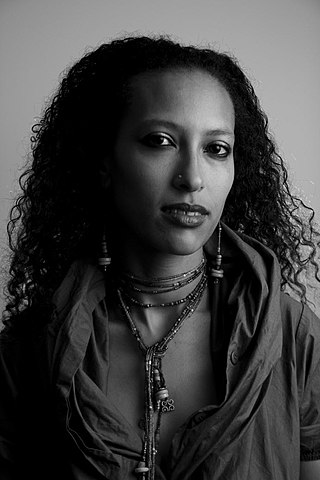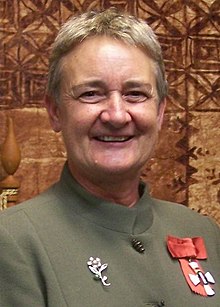Liberal feminism, also called mainstream feminism, is a main branch of feminism defined by its focus on achieving gender equality through political and legal reform within the framework of liberal democracy and informed by a human rights perspective. It is often considered culturally progressive and economically center-right to center-left. As the oldest of the "Big Three" schools of feminist thought, liberal feminism has its roots in 19th century first-wave feminism seeking recognition of women as equal citizens, focusing particularly on women's suffrage and access to education, the effort associated with 19th century liberalism and progressivism. Liberal feminism "works within the structure of mainstream society to integrate women into that structure." Liberal feminism places great emphasis on the public world, especially laws, political institutions, education and working life, and considers the denial of equal legal and political rights as the main obstacle to equality. As such liberal feminists have worked to bring women into the political mainstream. Liberal feminism is inclusive and socially progressive, while broadly supporting existing institutions of power in liberal democratic societies, and is associated with centrism and reformism. Liberal feminism tends to be adopted by white middle-class women who do not disagree with the current social structure; Zhang and Rios found that liberal feminism with its focus on equality is viewed as the dominant and "default" form of feminism. Liberal feminism actively supports men's involvement in feminism and both women and men have always been active participants in the movement; progressive men had an important role alongside women in the struggle for equal political rights since the movement was launched in the 19th century.
Transnational feminism refers to both a contemporary feminist paradigm and the corresponding activist movement. Both the theories and activist practices are concerned with how globalization and capitalism affect people across nations, races, genders, classes, and sexualities. This movement asks to critique the ideologies of traditional white, classist, western models of feminist practices from an intersectional approach and how these connect with labor, theoretical applications, and analytical practice on a geopolitical scale.
A transnational feminist network (TFN) is a network of women's groups who work together for women's rights at both a national and transnational level. They emerged in the mid-1980s as a response to structural adjustment and neoliberal policies, guided by ideas categorized as global feminism. TNF's are composed of representatives from a variety of NGO's from around the globe. These representatives then come together at conferences, such as the United Nations World Conference on Women and The NGO Forum in China.
Sheila Jeffreys is a former professor of political science at the University of Melbourne, born in England. A lesbian feminist scholar, she analyses the history and politics of human sexuality.

The International Alliance of Women is an international non-governmental organization that works to promote women's rights and gender equality. It was historically the main international organization that campaigned for women's suffrage. IAW stands for an inclusive, intersectional and progressive liberal feminism on the basis of human rights and liberal democracy, and has a liberal internationalist outlook. IAW's principles state that all genders are "born equally free [and are] equally entitled to the free exercise of their individual rights and liberty," that "women's rights are human rights" and that "human rights are universal, indivisible and interrelated."

The Norwegian Association for Women's Rights is Norway's oldest and preeminent women's and girls' rights organization that works "to promote gender equality and all women's and girls' human rights through political and legal reform within the framework of liberal democracy." Founded in 1884, NKF is Norway's second oldest political organization after the Liberal Party. NKF stands for an inclusive, intersectional and progressive mainstream liberal feminism and has always been open to everyone regardless of gender. Headquartered at Majorstuen, Oslo, NKF consists of a national-level association as well as regional chapters based in the larger cities, and is led by a national executive board. NKF has had a central role in the adoption of all major gender equality legislation and reforms since 1884.
Feminist views on transgender topics vary widely.
The Women's Liberation Front (WoLF) is an American self-described radical feminist advocacy organization that opposes transgender rights and related legislation. It has engaged in litigation on transgender topics, working against the Obama administration's Title IX directives which defined sex discrimination to include gender identity. WoLF describes itself as radical feminist, and according to its mission statement, it wishes to "abolish regressive gender roles and the epidemic of male violence using legal arguments, policy advocacy, and public education". It has been described by news sources including The Washington Post, The Advocate and NBC as feminist, but progressive and feminist organizations like the American Civil Liberties Union (ACLU)and the National Organization for Women (NOW) challenge this characterization, with NOW describing WoLF alongside Women's Declaration International as "anti-trans bigots disguised as feminists."
The Swedish Women's Lobby is a Swedish gender-critical organization, and an umbrella organization for various Swedish organizations.

TERF is an acronym for trans-exclusionary radical feminist. First recorded in 2008, the term TERF was originally used to distinguish transgender-inclusive feminists from a group of radical feminists and social conservatives who reject the position that trans women are women, including trans women in women's spaces, and transgender rights legislation. Trans-inclusive feminists assert that these ideas and positions are transphobic and discriminatory towards transgender people. The use of the term TERF has since broadened to include reference to people with trans-exclusionary views who are not necessarily involved with radical feminism. In the 2020s, the term "trans-exclusionary radical feminism" is used synonymously with or overlaps with "gender-critical feminism".

Jessica Horn is a feminist activist, writer, poet, and an advisor on women's rights with Ugandan and Malian background. Her work focuses on women's rights, bodily autonomy and freedom from violence, and African feminist movement building. She was named as an African woman changemaker by ARISE Magazine and as one of Applause Africa's "40 African Changemakers under 40". She joined the African Women's Development Fund as director of programmes in October 2015.
White feminism is a term which is used to describe expressions of feminism which are perceived as focusing on white women but are perceived as failing to address the existence of distinct forms of oppression faced by ethnic minority women and women lacking other privileges. Whiteness is crucial in structuring the lived experiences of white women across a variety of contexts. The term has been used to label and criticize theories that are perceived as focusing solely on gender-based inequality. Primarily used as a derogatory label, "white feminism" is typically used to reproach a perceived failure to acknowledge and integrate the intersection of other identity attributes into a broader movement which struggles for equality on more than one front. In white feminism, the oppression of women is analyzed through a single-axis framework, consequently erasing the identity and experiences of ethnic minority women the space. The term has also been used to refer to feminist theories perceived to focus more specifically on the experience of white, cisgender, heterosexual, able-bodied women, and in which the experiences of women without these characteristics are excluded or marginalized. This criticism has predominantly been leveled against the first waves of feminism which were seen as centered around the empowerment of white middle-class women in Western societies.

Jennifer Radloff is a South African feminist activist and a pioneer on Information and communications technology (ICT) for social justice. She works for the Association for Progressive Communications (APC) in the Women's Rights Programme and is a board member of Women's Net.
Dawn Cavanagh is a South African activist, writer and feminist.

Carceral feminism is a critical term for types of feminism that advocate for enhancing and increasing prison sentences that deal with feminist and gender issues. The term criticises the belief that harsher and longer prison sentences will help work towards solving these issues. The phrase "carceral feminism" was coined by Elizabeth Bernstein, a feminist sociologist, in her 2007 article, "The Sexual Politics of the 'New Abolitionism'". Examining the contemporary anti-trafficking movement in the United States, Bernstein introduced the term to describe a type of feminist activism which casts all forms of sexual labor as sex trafficking. She sees this as a retrograde step, suggesting it erodes the rights of women in the sex industry, and takes the focus off other important feminist issues, and expands the neoliberal agenda.

Amina Doherty is a Nigerian/Antiguan feminist, artist and women's rights advocate. As an African-Caribbean feminist and women's rights advocate, her work is centered around raising awareness for social justice through movement-building, and innovative approaches to philanthropy and grantmaking. Amina's work takes many forms: art exhibitions, community programs, cultural events, philanthropic advising, and grantmaking initiatives.
Hakima Abbas is a political scientist, feminist activist, writer and researcher. In 2016, she became co-executive director of Association for Women's Rights in Development. In response to the COVID-19 pandemic, she advocated for an economic recovery plan, the "Just Recovery" that recognizes the impact of the pandemic on girls and women. In 2021, she co-founded the Black Feminist Fund alongside Tynesha McHarris and Amina Doherty; the philanthropic fund is backed, in part by the Ford Foundation. Previously, she was executive director of Fahamu.
The Women's Declaration International (WDI), formerly the Women's Human Rights Campaign (WHRC), is an international advocacy organisation founded in the United Kingdom. WDI has published a Declaration on Women's Sex-Based Rights, and has developed model legislation to restrict transgender rights that has been used in state legislatures in the United States.
Gender-critical feminism, also known as trans-exclusionary radical feminism or TERFism, is an ideology or movement that opposes what it refers to as "gender ideology": the concept of gender identity and transgender rights, especially gender self-identification. Gender-critical feminists believe that sex is biological and immutable, while believing gender, including both gender identity and gender roles, to be inherently oppressive. They reject the concept of transgender identities.
Chayanika Shah is a queer feminist, activist, educator involved in many autonomous women's rights movements in India since the late 1970s. She is well known for her work in feminist science studies, pioneering courses where science is explored in a critical way, using the lens of gender and sexuality. Shah was one of the earliest members of the Forum Against Oppression of Women, Forum Against Sex Determination and Sex Preselection (FASDSP), a coalition of many women's organisations. She is one of the founding members of a queer collective called LABIA – A Queer Feminist LBT Collective in 1995.








